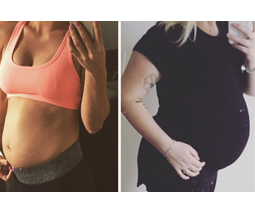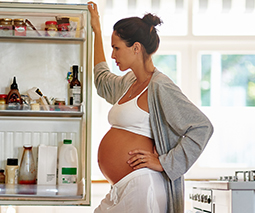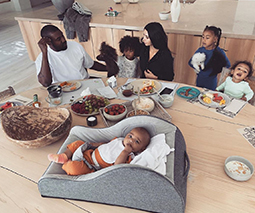Parents’ happiness during pregnancy can impact their child’s toddler behaviour

A new study has found that the emotional wellbeing of both mums and dads during pregnancy can help to predict emotional and behavioural problems in two-year-olds.
Mum’s and dad’s happiness matters
It’s the first study to track both parents’ wellbeing before and after birth and the impact it has on children’s behaviour at 14 and 24 months of age.
A team of researchers from the Universities of Cambridge, Birmingham, New York and Leiden looked at a group of 438 first-time mothers and fathers, following them up at 4, 14 and 24-month intervals after the birth of their baby.
They discovered that mums who suffered from stress and anxiety during pregnancy had toddlers who were more likely to display temper tantrums, restlessness and spitefulness. Ugh.
Conflict between parents also impacted the way toddlers behaved, the research found.
“The researchers also found that two-year-olds were more likely to exhibit emotional problems – including being worried, unhappy and tearful; scaring easily, or being clingy in new situations – if their parents had been having early postnatal relationship problems,” Science Daily reports.
“These ranged from a general lack of happiness in the relationship to rows and other kinds of conflict”
Parents and parents-to-be need more support
This might seem demoralising for couples who are struggling, but it’s actually information that may help some families take steps to access support.
“Our findings highlight the need for earlier and more effective support for couples to prepare them better for the transition to parenthood,” lead author, Professor Claire Hughes from Cambridge’s Centre for Family Research, said.
She notes that the health of parents’ relationships needs to be looked at together, rather than in isolation, because the way they are relating to each other really does impact their baby’s long-term wellbeing.
This is an important early intervention strategy to consider if we want to help families thrive and help parents raise happy and resilient kids.
“We need to make antenatal support much more inclusive and give first-time mums and dads the tools they need to communicate with each other and better prepare them for this major transition. With resources stretched, parents are missing out on the support they need,” co-author, Dr Sarah Foley, also from Cambridge’s Centre for Family Research












